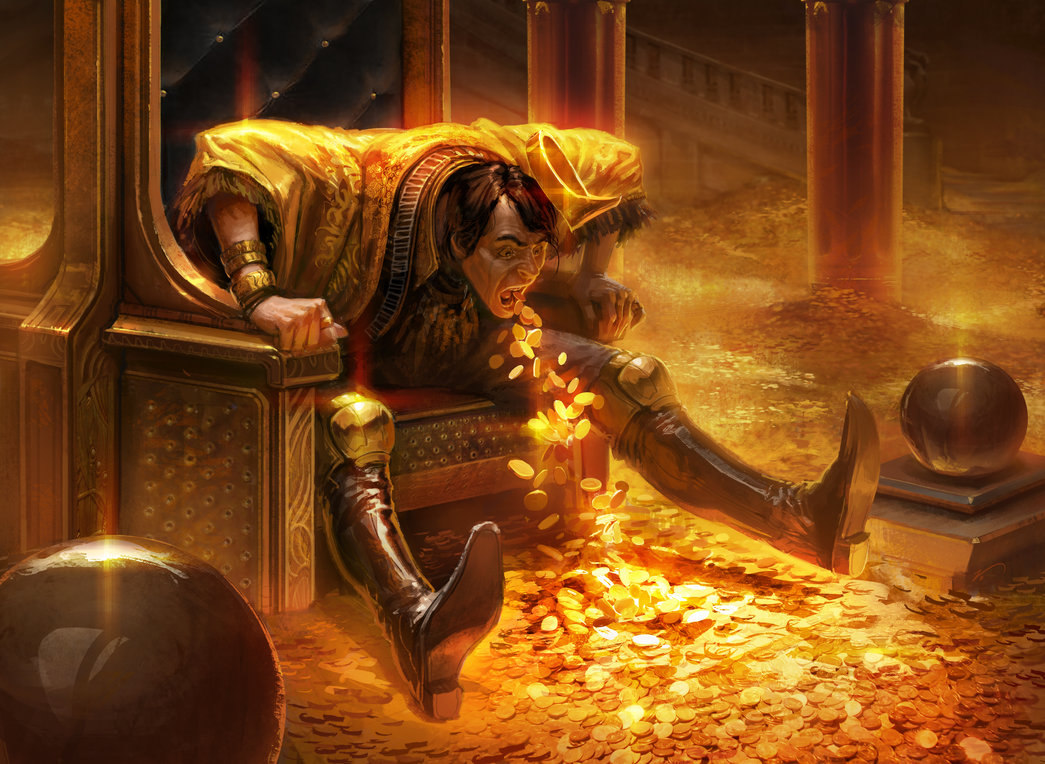
Greed Isn’t THE issue
“Too often the debate of economics and religion is reduced to issues of morality—for instance, when greed is identified as the culprit in economics. As a result, individual CEOs and business leaders are condemned as greedy. This approach is doubly problematic, as it neglects the real structures of the economy, and it sets up a false alternative. Even the most powerful CEOs need to act according to the dictates of the market, so the main problem is not a lack of personal moral values but the particular values produced by the market; that is, the ethics of the market.” —Joerg Rieger, No Rising Tide, Theology, Economics, and the Future
I have consistently encountered people who want to defend capitalism by claiming that the real issue is greed, not the economic system itself. As theologian Joerg Rieger points out above, this simplistic moral explanation really does miss a HUGE piece of the picture.
In my opinion, greed, as a human trait, is better understood as a symptom of an underlying existential anxiety that all humans deal with on some level: the fear of death. Surely there are certain things that can trigger our evolutionarily inherited survival instincts (especially if we’re unaware that we have them); in-group/out-group biases, for instance, can easily be triggered by competition for resources. Capitalism is especially nefarious then, in my opinion, because it purposefully triggers and exploits these inherited biases we all consciously or unconsciously struggle with. Even though I believe humans are naturally productive/creative creatures and feel that we don’t need to be manipulated in order to be this way, I will concede that capitalism creates productivity, to some degree, by promoting “free-market competition.” But it does not reliably reward virtue (to argue otherwise is foolish). In fact, since capitalism mainly rewards success within a competitive environment we will often find that the “good guys finish last.” This is the epitome of what I would call corruption and greed.
My instinct, however, despite what some Christian theologians might have us believe, is that humans are not inherently stained with self-centered greediness. Two personal explanatory thoughts here:
1) as a process-relational, non-dual Christian, I believe that a) good and evil is a very unhelpful binary (i.e. “evil” is not the proper diametric for “good”), especially when “evil” is used as a label for things found in nature (including humans ), and b) it is absurd to claim that humans are greedy because of some sort of depraved unchanging nature (be it good or evil). If anything, I would claim that evil (as a maleficent personified force in the universe) does not exist, and I’m optimistic about the nature of things in that I think all things are full of potential (or, if pressed, yes “good” on some basic, primitive level as depicted in the Genesis 1:31 account of things) and are in a constant, never ending process of becoming more significant…
2) From an evolutionary, naturalistic perspective, part of what makes humans so evolutionarily distinct is our ability to cooperate, to share (ideas, food, material things, etc.) and to work together to accomplish remarkable feats. Darwin’s famous phrase “survival of the fit” means that those organisms best adapted to their environment are the ones that survive over the long haul and, from what I understand, adaptation is achieved far more often by cooperation than competition. More often than not competition wastes energy to no useful end while cooperation harnesses the energy of many individuals for the benefit of the group as a whole.
To sum up, although greed, as an observable human trait or inherited proclivity, may have at one time provided some sort of evolutionary benefit to our ancestors it is one that most world religions condemn as harmful and not at all admirable. Conversely, as Chandra Muzaffar has written, it is economic liberalism/capitalism that “has legitimized, sanctified, and normalized greed as no other epoch before us has done.”

0 Comments